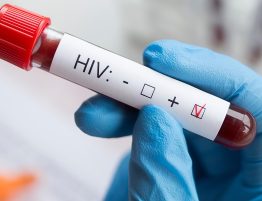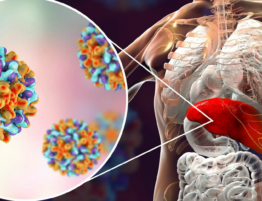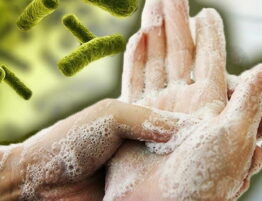
What is HIV infection?
HIV infection is an infectious disease caused by the human immunodeficiency virus (HIV).
HIV attacks the human immune system, causing various diseases to develop.
AIDS – acquired immunodeficiency syndrome – is the last stage of HIV infection.
HIV is transmitted:
- during sexual contact with an infected partner;
- when using non-disinfected syringes and needles;
- from an HIV-infected mother to a child during pregnancy and childbirth, breastfeeding;
- through non-disinfected instruments for shaving, manicure and other hygiene procedures.
HIV is not transmitted:
- with generally accepted forms of greetings (handshakes, friendly kisses, hugs);
- through dishes, clothes, linen and other household items;
- airborne droplets (when coughing and sneezing);
- when visiting a swimming pool, shower, sauna, toilet;
- for insect bites.
How can HIV be detected?
HIV can live in the body for a long time before any symptoms appear. Often people living with HIV feel well during this time and do not even suspect that the virus is in their body. The only way to identify the disease is to undergo testing for the presence of specific antibodies to HIV in the blood.
In response to the penetration of HIV, antibodies to this virus begin to be produced in the blood. They can be identified no earlier than 3-6 months. Therefore, it is recommended to test for antibodies to HIV 3-6 months from the moment of suspected infection. During this period, an infected person can already transmit HIV to other people under certain conditions.
Anonymous and voluntary HIV testing can be done at a local clinic during opening hours of treatment rooms on weekdays.
To date, there are no effective treatments for this disease. Only understanding the problem and safe behavior can preserve health.
Young people are at greatest risk of contracting HIV infection due to their age and behavioral characteristics: they engage in early or reckless sexual relations, and succumb to the temptation to take drugs. Everyone should think about the possibility of HIV infection. Especially one whose behavior may be risky.
You will preserve your health and life if you do not experiment with drugs and abstain from early sexual relations.
The most important thing in life is health!
If you want to know more about HIV infection, please contact:
- Department for the Prevention of HIV Infection of the State Institution “Brest Regional Center for Hygiene, Epidemiology and Public Health”: Brest, Svobody Square, 8, room. 3, tel. (0162) 20 75 89, (0162) 20 75 86;
- consultative and dispensary office of the Brest Regional Consultative Clinic of the Brest Regional Hospital: Brest, st. Meditsinskaya, 5, 4th floor, room. 419, tel. (0162) 27 21 99.
The test results obtained, as well as a conversation with a doctor, will help you make the right decision regarding your health and future life.
Ministry of Health of the Republic of Belarus. State Institution “Brest Zonal Center for Hygiene and Epidemiology”, 2015







